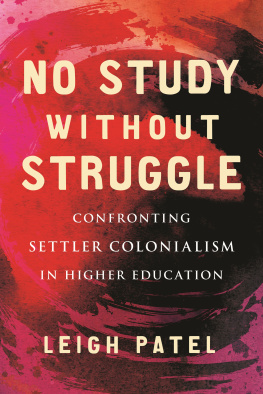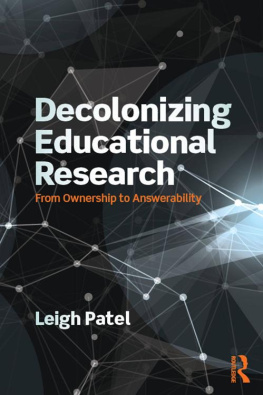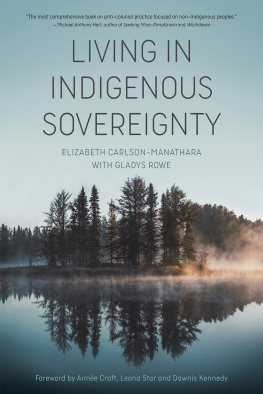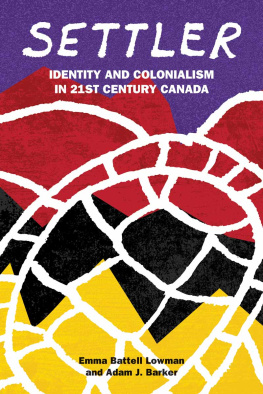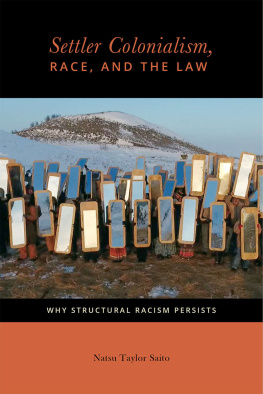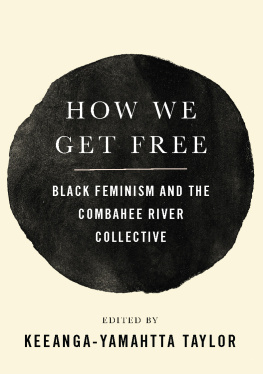Contents
Pagebreaks of the print version
Guide

This book is dedicated to all the study groups everywhere and to Thomas Nikundiwe, an education justice warrior of love.
AUTHORS NOTE
W hen I was in elementary school, I learned about the thirteen colonies and how these were established by people from England seeking religious freedom. In sixth grade, my Hopkinton Middle School class took an hour-long bus ride to visit the Boston Tea Party Museum, where we listened to a short speech by a white man dressed in colonial-looking clothes. We then lined up to toss an empty cardboard box marked TEA that had been shellacked to resemble a wooden box. We tossed the box into the shallow water and then, using the attached slimy rope, pulled it back up for the next tween to simulate the fabled Tea Party rebellion.
At the time, I was more excited about the candy in the gift shop than any of the stories I was being told or invited to re-enact. And indeed, stories they were. Decades later, when I was invited to the Wpanak peoples annual multiday Powwow event, not so far from that museum in Boston built to perpetuate myths, my eyes welled as parents, families, and teachers boldly celebrated the Native students who had graduated from elementary school, high school, and college. The accomplishments and the celebration of them defied centuries of cultural erasure and family separation through boarding schools, forced removal from homelands, and the US governments repeated violations of treaties. By then, I had learned a thing or two about colonialism, and, as the oft-quipped saying goes, once you know something, you cannot unknow it. This holds doubly true for colonial mythologies as well as the European invasion of Wpanak lands.
In actuality, another clich, that history repeats itself, rings true. The practices of colonialism, along with the ubiquitous investment in them, continue today. But in other respects, the clich falls shortreckoning with the various struggles against colonialism. This book highlights the intertwined nature of study and struggle. Whenever education, specifically higher education, has been made to reckon with its settler colonial structure, it has been largely through the struggles of those cast underneath the heel of oppression, fueled by their own formations to study.
There are many realms where settler colonialism operates, but formal schooling has been a main delivery system and key institution. From the Indian boarding schools in the early 1800s, whose avowed mission was to kill savage to save the man, to contemporary curricula that both erase the ongoing histories of Native people and reinforce undeniably false and simplistic stories of the nations formation, education has been crucial to the multifaceted project of settler colonialism. In fact, without schools teaching these falsehoods and perpetuating erasures, it would be much more difficult for colonialisms defenders to advance the theory of American success based on bootstrap individualism. Significantly, the very defenders who claim that this nation is meritocratic are often the beneficiaries of a centuries-long holocaust in which their ancestors seized Indian land and stole Black labor. The struggle to interrupt these narratives have been present throughout this history and in current contexts.
In November of 2019, the North Carolina State Board of Education rescinded its approval for an Indigenous-focused charter school designed by Drs. Rose Marie Lowry-Townsend, Brenda Dial Deese, Tiffany Locklear, and Denise Huntfour women who are American Indians and have PhDs and wide experience in a variety of education settings and roles. They designed the school in the spirit of charter schools original intent, which was to redress the failings of mainstream education. In this case, the purpose was to educate Lumbee and other students from an Indigenous-focused curriculum, providing them with dual proficiencies in state-mandated standards while maintaining and preserving Indigenous ways of knowing. The North Carolina Charter Schools Advisory Board rescinded the approval for the Old Main STREAM Academy twice, first on the basis of it not promoting unity, and then on the vague basis that the school was not ready to open. One charter school review board member, Lindalyn Kakadelis, explained her rationale by using a secondhand summation of Quechua scholar Sandy Grandes book, Red Pedagogy. Kakadelis had not read the now-classic study of Indigenous ways of knowing and how they differ from Marxist analyses. Nonetheless, she assumed that the book greatly informed the charter schools application and countered the book: I did not find one thing in the book that talked about the greatness of America. Now let me make it perfectly clear: America has sins. There are things I wish we had never done, slavery included.... Bad marks on our country. But we learned from them and were changed and were not what we used to be. Ive got to say that everything I found was divisive instead of bringing unity. Ironically, Grandes book, while a robust and oft-used text in Indigenous and decolonization studies, was not the basis of the charter schools curriculum.
Kakadeliss comments are objectionable because they are inaccurate. But more fundamentally, her comments and the moving line of approval, in essence, reveal whats behind the false narrative propping up this nation, which still delivers punishing material outcomes through settler power relations that seek to erase Indigeneity, contain Black peoples for profit, and exploit migrant labor for the purpose of hypermasculine global dominance. Many have spoken Kakadeliss message of unity over division, but it is too often thrown in the laps of those who must give up significant parts of themselves to be part of that unity. In the case of the Old Main STREAM Academy in North Carolinaor more accurately, in Lumbee territoryfor the Lumbee children, their lived realities cannot exist side by side with colonialist narratives without exposing them as lies. These children might also be expected to assimilate into a US meritocracy that still holds little but violence and erasure for Native peoples. Put more simply, Kakadeliss claim that we have learned from the occasional mistakes, even sins, of the past is patently wrong. On the contrary, her dismissal of Grandes book shows how, without even reading it, the books existence presented a threat to settler narratives of national advancement.
I draw attention to this example because it pulls into focus many of the intersections covered in this book: the ongoing structure and grip of settler colonialism, the myriad ways in which people have resisted it, and the central place of study in the struggle for a more just society. To make this point, I could have discussed the backlash to ethnic studies in Tucson, Arizona, the federal closing of Black Saturday schools founded by the Black Panther Party, the 1921 burning of the largely Black-owned and -led district of Greenwood in Tulsa, Oklahoma, or the mass hanging of Dakota men ordered by Abraham Lincoln in 1862 to make this point. I chose a recent example to underscore the fact that study and sovereignty have always had a tenuous, if not exploitive, power relation in formal education. I wrote about this example at a time when this nation is tested by many stressors: a global pandemic in which this nation has steadily led in rates of infection and death, unemployment levels not seen since the Great Depression, and a persistent flow of uprisings against anti-Black racism that continued even when much of the nation sought to shelter-in-place from the pandemic. The nation has on its hands two pandemics, the novel coronavirus and a pandemic of anti-Black racism. Yet, it also faces a familiar plight: reconciling word and deed. The nation still upholds itself as the land of opportunity, where liberty, justice, and pursuit of happiness are on offer for all. Yet, during 2020 alone, the nation watched as thousands protested the robbing of Black life at the hands of militarized law enforcement and white men who had deputized themselves. Although the nations words assert its excellence and talent, its deeds, devaluing most peoples lives and favoring individualism over collective wellness, were on full display, with Donald Trump, a lifelong explicit racist and misogynist, for years tweeting lies from the highest office in the land and refusing to concede electoral defeat despite clear evidence that he lost. These are not aberrations; they are but a few of the thousands of data points from a nation that has a beautiful declaration of independence, written and signed largely by white men who enslaved people.

